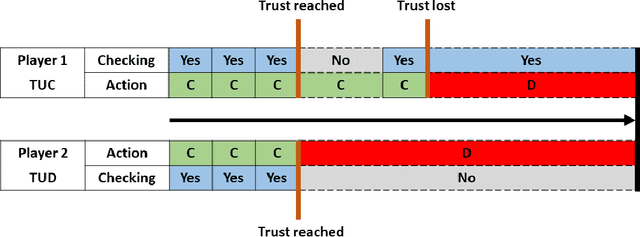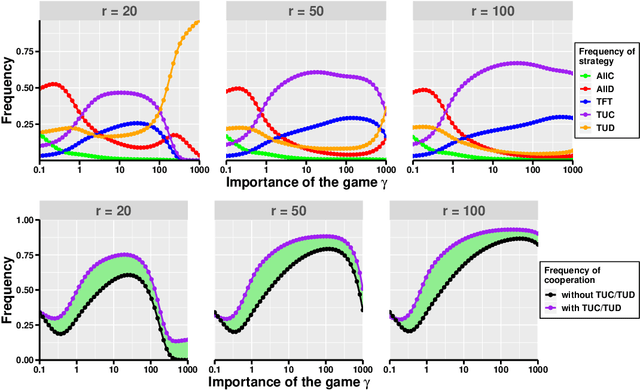Cedric Perret
Social Diversity Reduces the Complexity and Cost of Fostering Fairness
Nov 18, 2022



Abstract:Institutions and investors are constantly faced with the challenge of appropriately distributing endowments. No budget is limitless and optimising overall spending without sacrificing positive outcomes has been approached and resolved using several heuristics. To date, prior works have failed to consider how to encourage fairness in a population where social diversity is ubiquitous, and in which investors can only partially observe the population. Herein, by incorporating social diversity in the Ultimatum game through heterogeneous graphs, we investigate the effects of several interference mechanisms which assume incomplete information and flexible standards of fairness. We quantify the role of diversity and show how it reduces the need for information gathering, allowing us to relax a strict, costly interference process. Furthermore, we find that the influence of certain individuals, expressed by different network centrality measures, can be exploited to further reduce spending if minimal fairness requirements are lowered. Our results indicate that diversity changes and opens up novel mechanisms available to institutions wishing to promote fairness. Overall, our analysis provides novel insights to guide institutional policies in socially diverse complex systems.
When to (or not to) trust intelligent machines: Insights from an evolutionary game theory analysis of trust in repeated games
Jul 22, 2020



Abstract:The actions of intelligent agents, such as chatbots, recommender systems, and virtual assistants are typically not fully transparent to the user. Consequently, using such an agent involves the user exposing themselves to the risk that the agent may act in a way opposed to the user's goals. It is often argued that people use trust as a cognitive shortcut to reduce the complexity of such interactions. Here we formalise this by using the methods of evolutionary game theory to study the viability of trust-based strategies in repeated games. These are reciprocal strategies that cooperate as long as the other player is observed to be cooperating. Unlike classic reciprocal strategies, once mutual cooperation has been observed for a threshold number of rounds they stop checking their co-player's behaviour every round, and instead only check with some probability. By doing so, they reduce the opportunity cost of verifying whether the action of their co-player was actually cooperative. We demonstrate that these trust-based strategies can outcompete strategies that are always conditional, such as Tit-for-Tat, when the opportunity cost is non-negligible. We argue that this cost is likely to be greater when the interaction is between people and intelligent agents, because of the reduced transparency of the agent. Consequently, we expect people to use trust-based strategies more frequently in interactions with intelligent agents. Our results provide new, important insights into the design of mechanisms for facilitating interactions between humans and intelligent agents, where trust is an essential factor.
 Add to Chrome
Add to Chrome Add to Firefox
Add to Firefox Add to Edge
Add to Edge